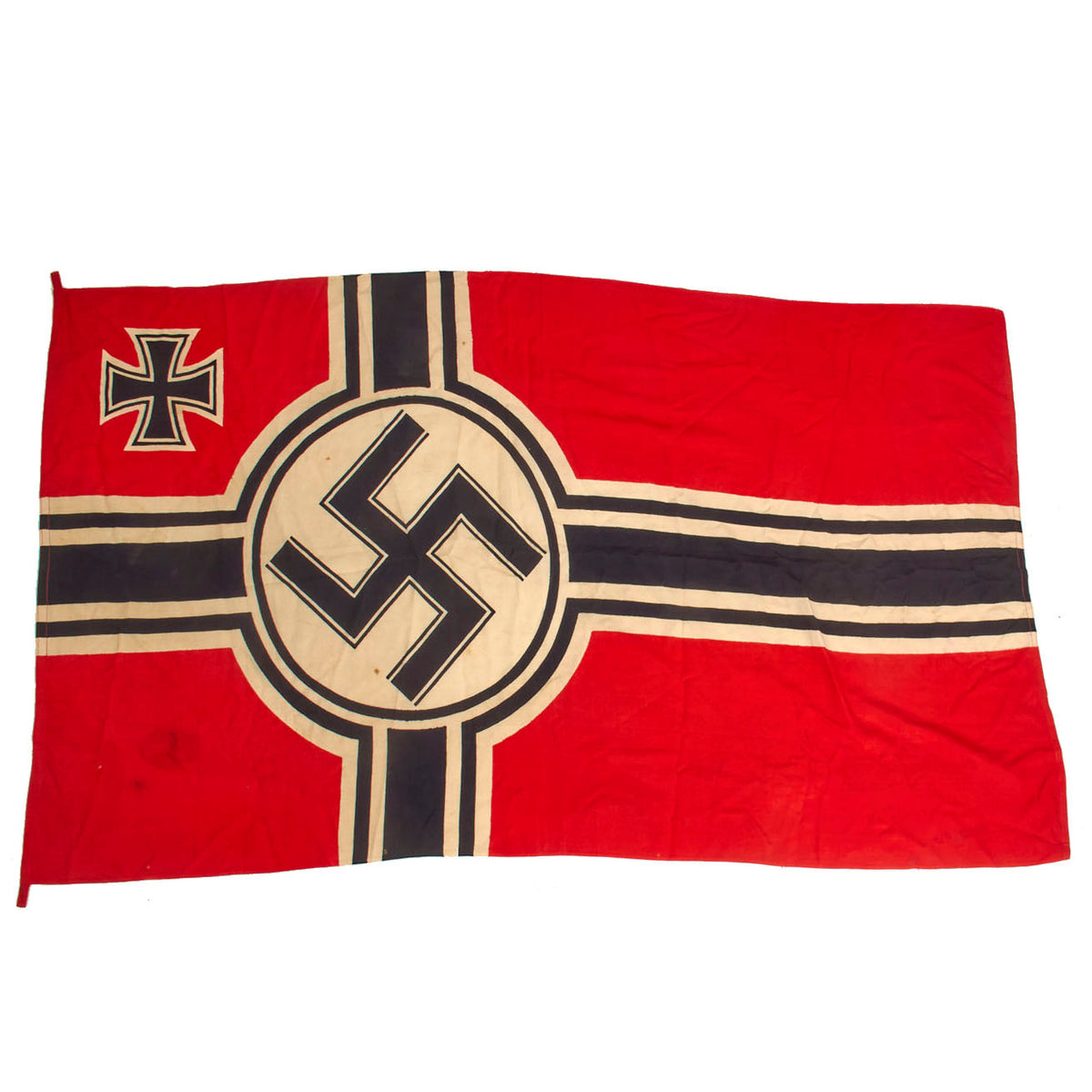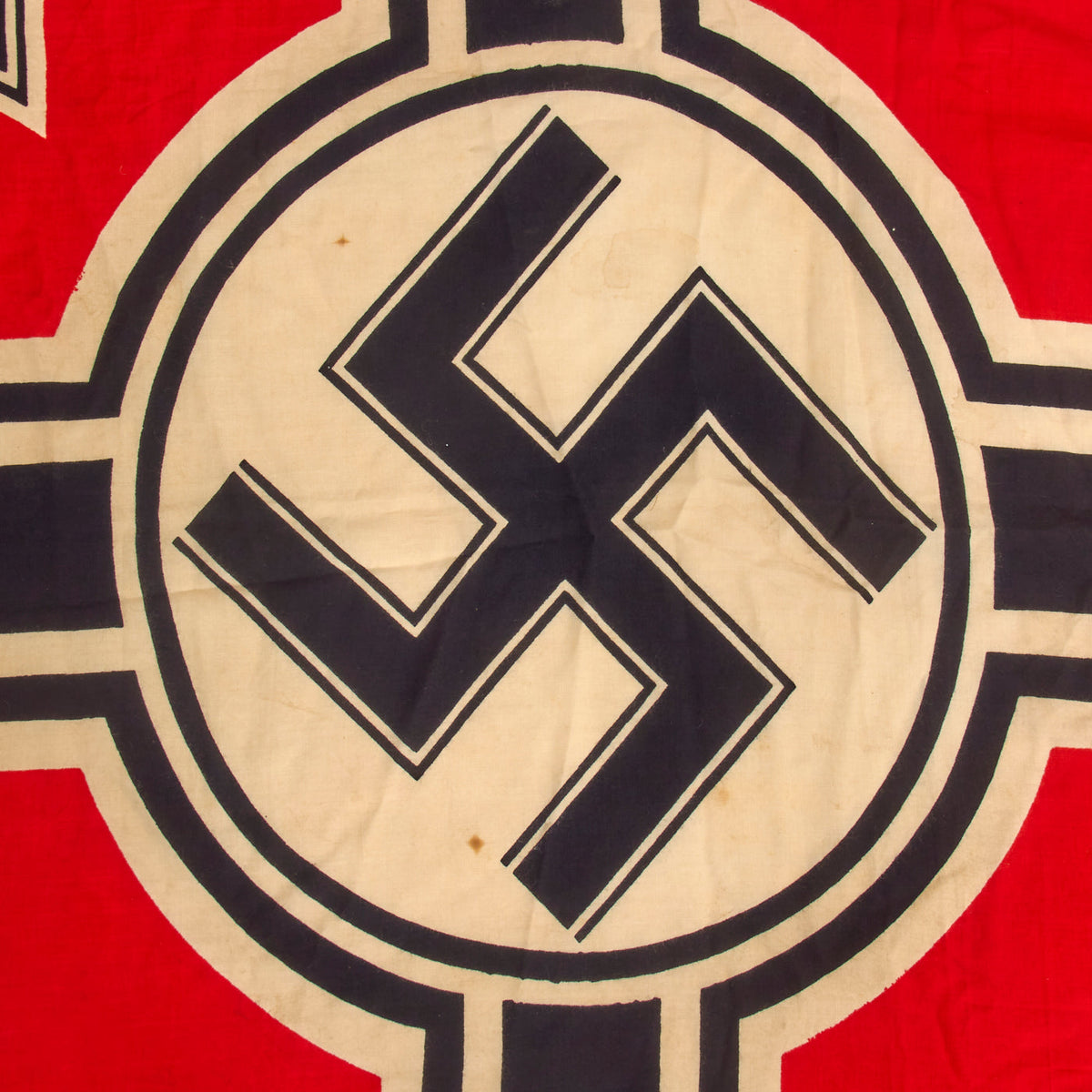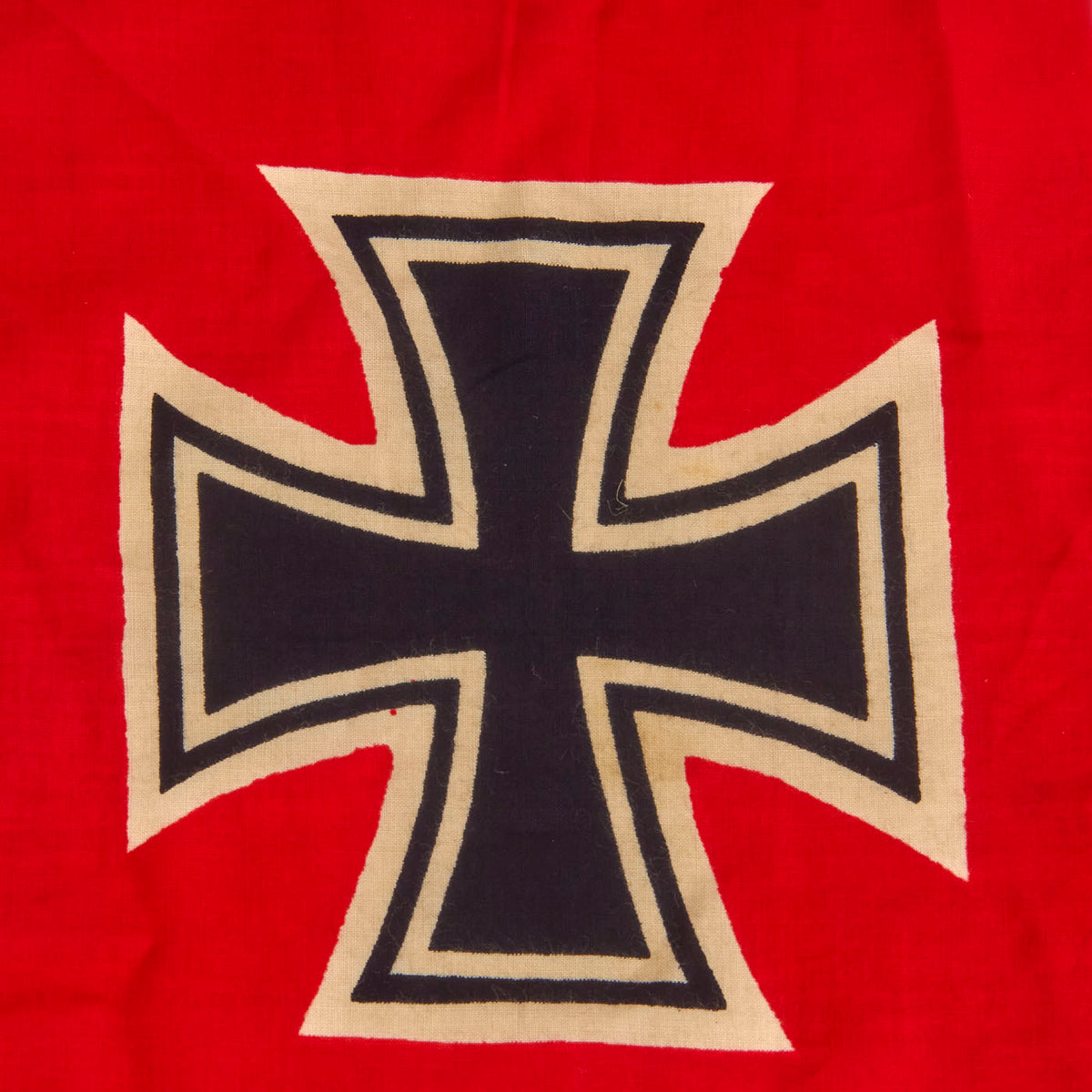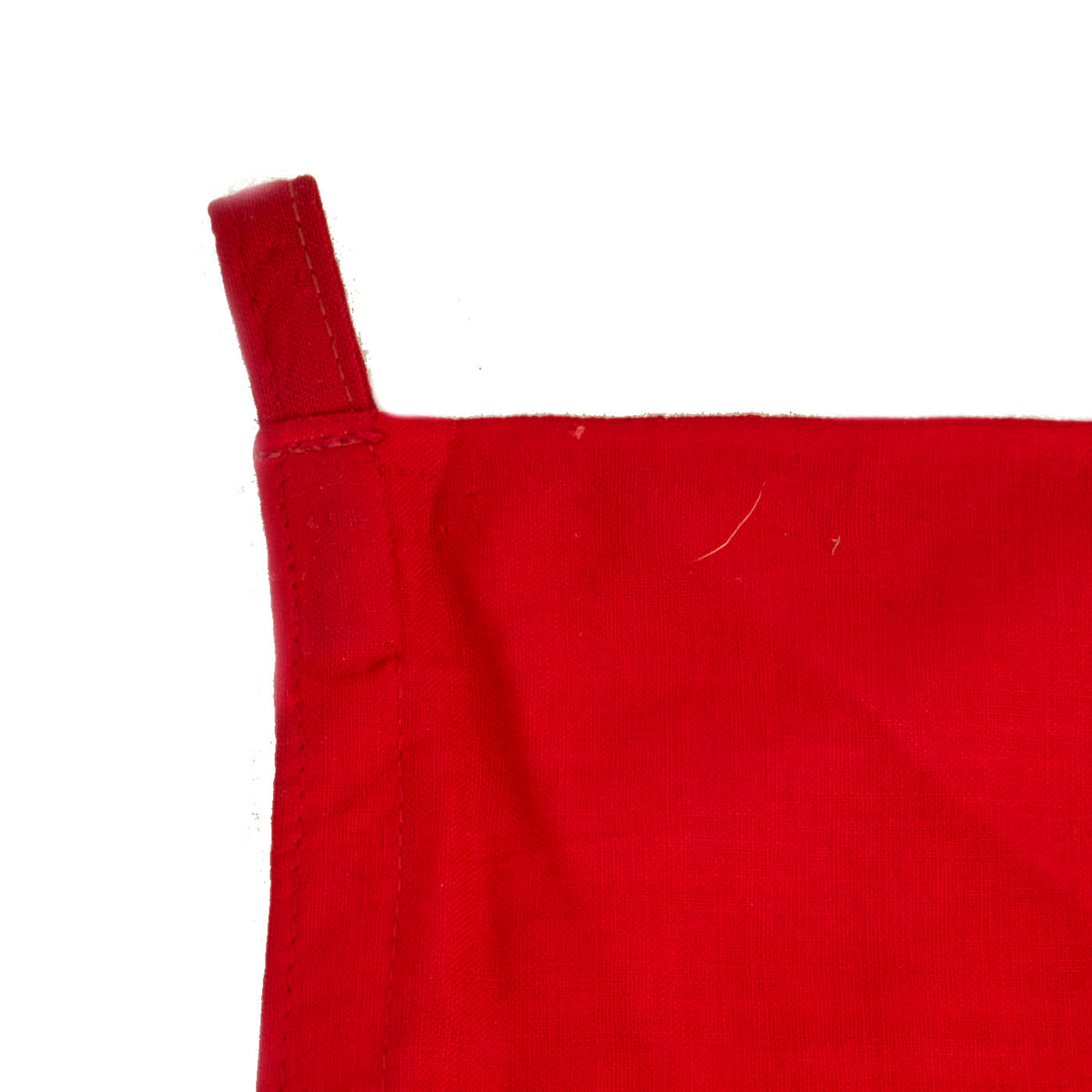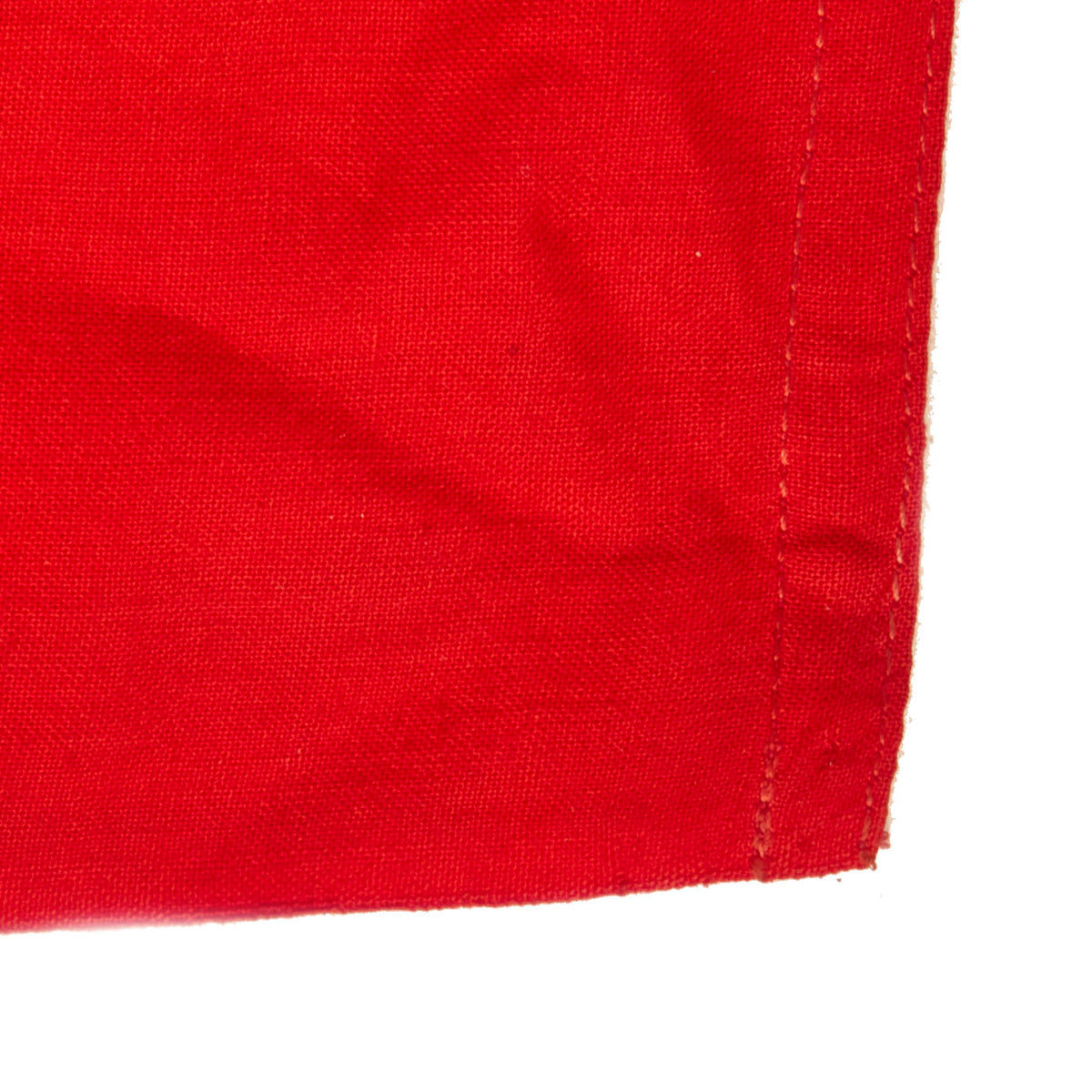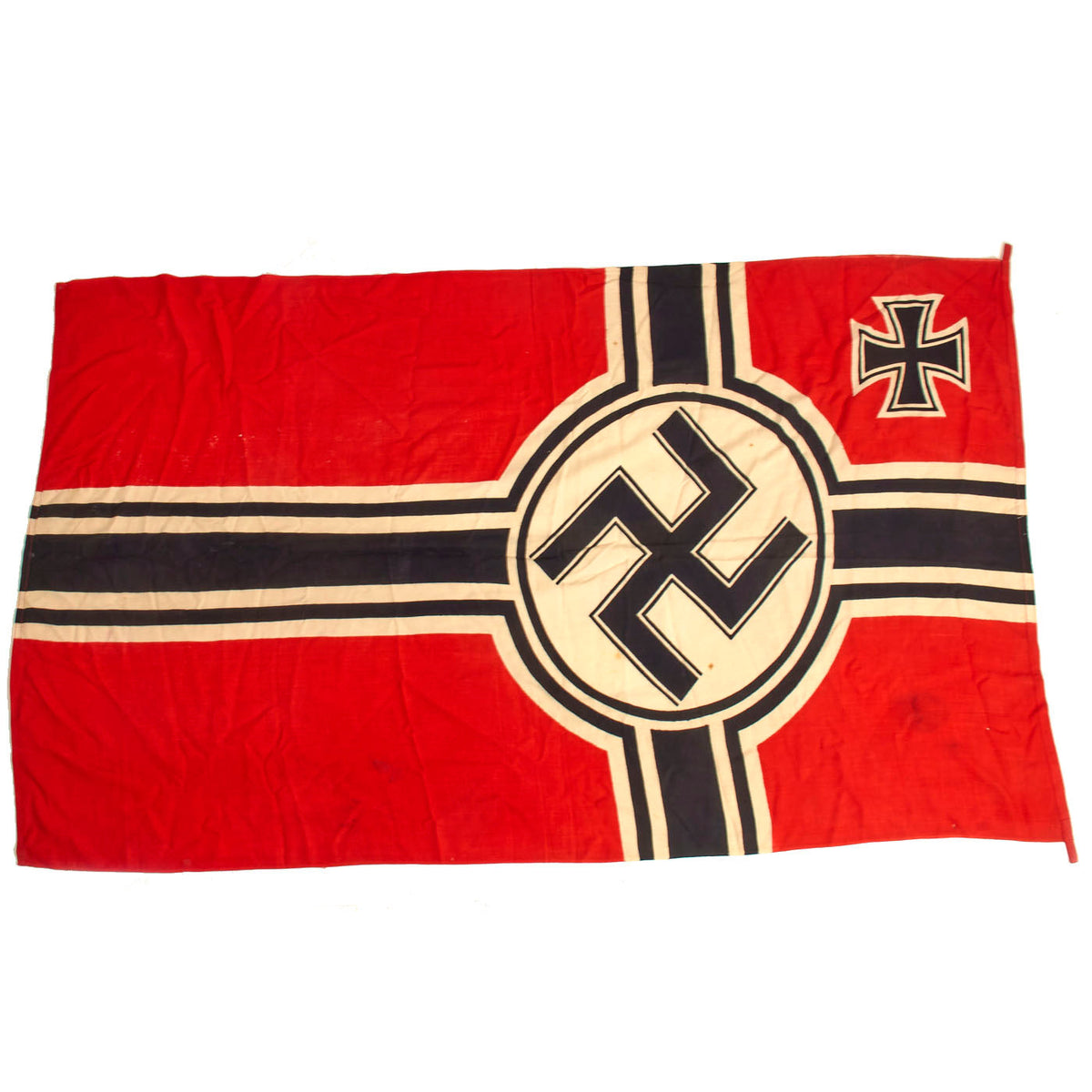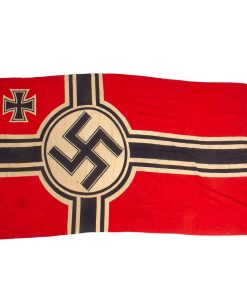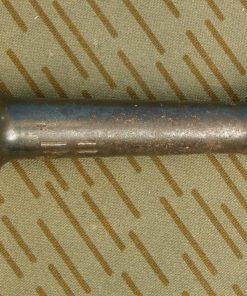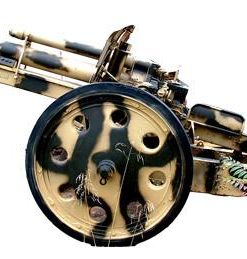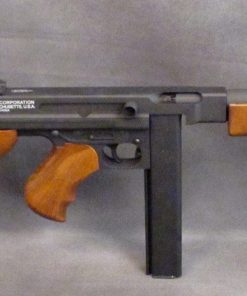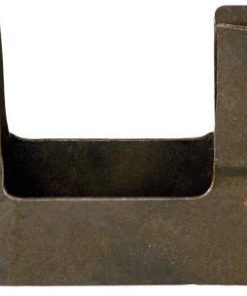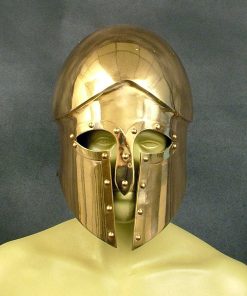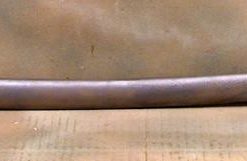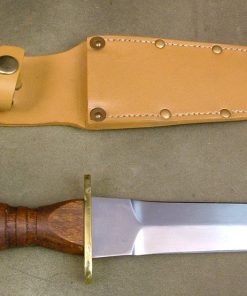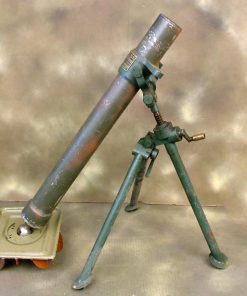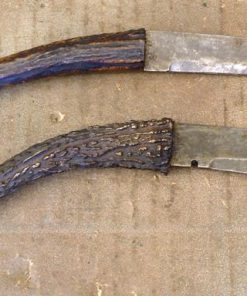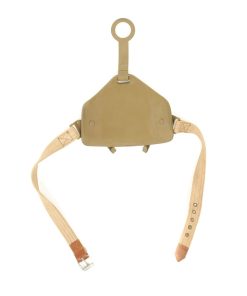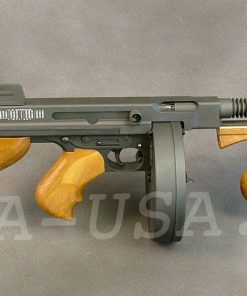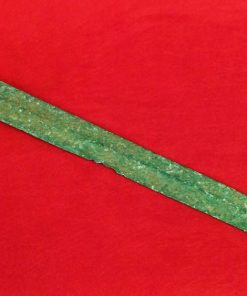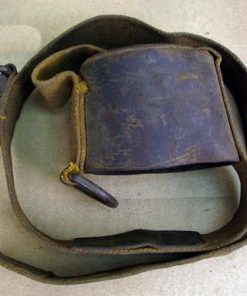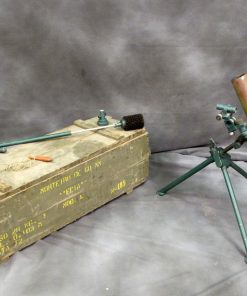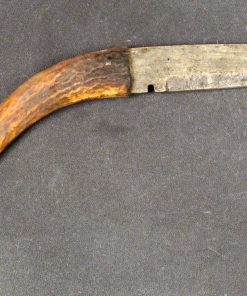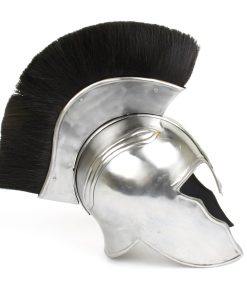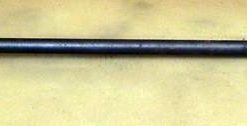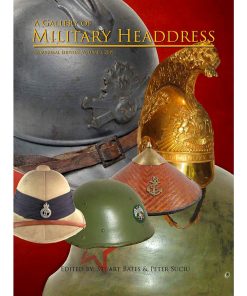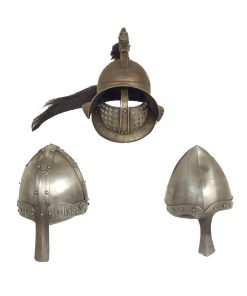Original German WWII 80cm x 135cm Battle Flag for Indoor Headquarters Use – Reichskriegsflagge Original Items
$ 695,00 $ 208,50
Original Item: Only One Available. Reichskriegsflagge (Imperial War Flag) was the official name of the war flag and war ensign used by the German armed forces from 1933 to 1945. Recently acquired at a large military auction, this is without a doubt the most impressive battle flag of the German WW2 era, it measures 80cm x 135cm (31.5in. x 53.1in), one of the standard sizes these were produced in.
Unlike most that we see, this example is relatively lightweight, and does not have a sturdy canvas header for flying, just two fabric loops at the end of a sewn over hem at the top. This flag was not intended for use in the field, and was instead displayed indoors, most likely at the headquarters of the unit. The flag has a bright red field (background) bearing the black & white German Naval Balkenkreuz (Beam Cross) design going to the edges. There is a large white central circle displaying a large Swas (hook cross) in black. In the top corner (Canton) is a black on white Eisernes Kreuz (Iron cross) cross pattée design.
This battle flag is totally original and is in good used condition with the colors still vibrant, especially the red. The white areas have just a bit of age toning, present on just about every flag out there. There are a few holes and small stains, but no major tears or other damage. A very nice example of a flag type we have rarely seen before!
Designed personally by Adolf AH, this flag served the Heer and the Luftwaffe as their War Flag, and the Kriegsmarine as its War Ensign (the National Flag serving as Jack). This flag was hoisted daily in barracks operated by units of the Wehrmacht combined German military forces, and it had to be flown from a pole positioned near the barracks entrance, or failing this, near the guard room or staff building. New recruits in the latter part of World War II were sworn in on this flag (one recruit holding the flag and taking the oath on behalf of the entire recruit class with the recruits looking on as witnesses – before, this was done on the regimental colors).
The flag had to be formally hoisted every morning and lowered every evening. These hoisting and lowering ceremonies took the form of either an ordinary or a ceremonial flag parade. At the ordinary raising, the party consisted of the Orderly Officer of the Day, the guard, and one musician. At the ceremonial raising, one officer, one platoon of soldiers with rifles, the guard, the regimental band, and the corps of drums were all present.
The proportions of the flag are 3:5. Fusing elements of the NSDAP German Flag (swas and red background) with that of the old Imperial Reich War Flag (four arms emanating from off-center circle and Iron Cross in the canton), these flags were uniformly produced as a printed design on bunting.
Raised for the first time at the Bendlerstraße Building (Wehrmacht Headquarters) in Berlin on November 7, 1935, It was taken down for the last time by British occupation forces after the arrest of the Dönitz Government at the Naval Academy Mürwik in Flensburg-Mürwik, Germany, on May 23, 1945.
In his book, Inside the Third Reich, Albert Speer states that “in only two other designs did he (Adolf AH) execute the same care as he did his Obersalzberg house: that of the Reich War Flag and his own standard of Chief of State.”
Fast Shipping with Professional Packaging
Thanks to our longstanding association with UPS FedEx DHL, and other major international carriers, we are able to provide a range of shipping options. Our warehouse staff is expertly trained and will wrap your products according to our exact and precise specifications. Prior to shipping, your goods will be thoroughly examined and securely secured. We ship to thousands clients each day across multiple countries. This shows how we're dedicated to be the largest retailer on the internet. Warehouses and distribution centres can be located throughout Europe as well as the USA.
Note: Orders with more than one item will be assigned a processing date depending on the item.
Before shipping before shipping, we'll conduct a thorough inspection of the items you have ordered. Today, the majority of orders will be delivered within 48 hours. The delivery time will be between 3-7 days.
Returns
The stock is dynamic and we cannot completely manage it because multiple stakeholders are involved, including our factory and warehouse. So the actual stock may alter at any time. It's possible that you may not receive your order once the order has been made.
Our policy is valid for a period of 30 days. If you don't receive the product within 30 days, we are not able to issue a refund or an exchange.
You can only return an item if it is unused and in the same state as the day you received it. You must have the item in its original packaging.
Related products
Uncategorized
Uncategorized
Band of Brothers ORIGINAL GERMAN WWII Le. F.H. 18 10.5cm ARTILLERY PIECE Original Items
Uncategorized
Uncategorized
Uncategorized
Uncategorized
Uncategorized
Uncategorized
Uncategorized
Uncategorized
Uncategorized
Uncategorized
Uncategorized
Uncategorized
Uncategorized
Uncategorized
Uncategorized
Australian WWII Owen MK1 Machine Carbine SMG Custom Fabricated Replica with Sling Original Items
Uncategorized
Uncategorized
